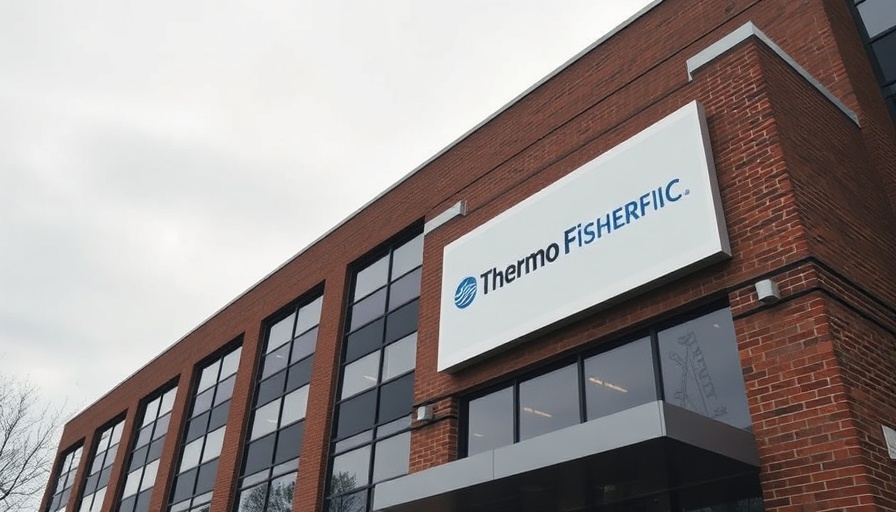
Thermo Fisher's $4B Leap in Bioprocessing
In a strategic move to enhance its life sciences capabilities, Thermo Fisher Scientific has announced the acquisition of Solventum's Purification and Filtration business for approximately $4.1 billion. This acquisition not only reflects Thermo Fisher's ambition to strengthen its position in the biopharmaceutical sector but also underscores the company's commitment to provide advanced solutions for biologic drug manufacturing.
Understanding the Acquisition's Implications
The deal, announced on Tuesday, adds to Thermo Fisher's growing portfolio, which already includes significant bioprocessing options such as cell culture media and single-use plastics. Solventum, spun off from 3M just a year prior, generated around $1 billion in revenue from this business segment in 2024, serving essential needs in both the medical and industrial sectors. Its technologies, which include filters and membranes, are crucial for various applications including water purification and food safety, thus broadening Thermo's operational landscape significantly.
The Broader Market Context
Market analysts, including Leerink Partners' Puneet Souda, emphasize that while Thermo Fisher is venturing into new territory, its competition in the filtration market includes established players like Danaher and Repligen. Acquiring Solventum enhances Thermo's downstream and upstream capabilities, crucial for meeting the evolving demands within the biopharmaceutical landscape, which has seen a notable shift towards biologic medicine.
Financial Insights and Future Expectations
Solventum's CEO, Brian Hanson, noted that the sale is part of a broader strategic realignment for his company, aimed at reducing debt and enhancing shareholder value. Once completed, this deal not only elevates Thermo's overall revenue potential but also strengthens its bioprocessing segment, which made up approximately 25% of its business in 2024. The expected closing of this acquisition by the end of this year will further position Thermo Fisher as a leader in life sciences solutions worldwide.
Conclusion
The acquisition of Solventum's purification and filtration unit marks a pivotal moment for Thermo Fisher, showcasing a proactive approach in expanding and diversifying its offerings in bioprocessing technologies. As healthcare professionals and digital health innovators, understanding these shifts enhances our awareness of market trends and innovation trajectories shaping the future of therapeutics.
 Add Row
Add Row  Add
Add 


Write A Comment